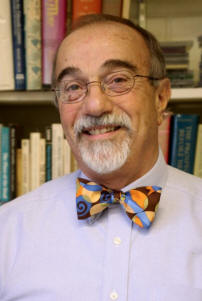News Tip - Expert Comments on Veteran Treatment
NewsThe United States is good at memorializing veterans and honoring them with material things, but we're not very good at providing assistance to veterans, according to JMU professor of history Dr. Michael J. Galgano.
Dr. Michael J. Galgano
Professor of history, James Madison University
galganmj@jmu.edu
(540) 568-3985
Dr. Galgano’s fields and specialties include Europe, Britain since 1500, gender, and religion and society. One of his special research interests is war veterans since 1500, a topic he is devoting more time to since stepping down as head of JMU’s history department in the summer of 2013 after serving in the role since 1985. In July 2013, he and retired Lt. Col. Peter S. Combee, a JMU alumnus who serves on the board of directors for Normandy Allies Inc., led a three-week study trip to Paris and Normandy in partnership with Normandy Allies. Galgano, Combee and 10 JMU students journeyed through the French capital, Rouen, Chartes, Mont St. Michel and Normandy to meet with veterans, government officials and people who were children at D-Day to better understand what happened during the Normandy invasion and how it is remembered as “very much a part of the living French memory.” Galgano and Combee will lead another Civilization, Culture and Memory: Paris and Normandy study trip in July 2014.
Quotes
“There is a cultural difference in the way Americans and Europeans view military service and commemorate that service. It goes back to the American Revolution that part of being a citizen is to fight to defend your country and those who do that are not owed anything beyond the thanks of the country for having done this.”
“That tension between what is owed to soldiers and what is not I think existed from the founding of the republic and it is still present. There are many today who see the Army since the ’70s as a professional Army, and the feeling is very much, except for those who were wounded, society does not owe them anything.”
By the mid-19th century, attitudes began to change. Pensions for the indigent and those who sustained severe injuries became more common. Then came the GI Bill in the 1940s – “the basis of modern American veterans benefits.” It recognizes that soldiers have given up productive years in their lives to serve in the military and are due help in education, housing and job training. “That is really the heart of the GI Bill.”
“Military service and sacrifice is more remembered in Europe.”
“These folks (at Normandy) have lost an enormous amount, and yet for them America gave them liberty and American GIs are welcomed and cerebrated everywhere.”
“We’re good at memorializing, we’re good at parades, we’re good at building cemeteries and statues, but at the same time we’re not very good at the second part, providing assistance. If we are, the evidence doesn’t support that we do.”
“If we’re thanking veterans for their service and yet not honoring that service with providing assistance that people are entitled to, what are we saying about ourselves? I believe in celebration because it makes it a part of the living experience of those who come after. At the same time, we have an obligation, it seems to me, as a people to those who have served.”

